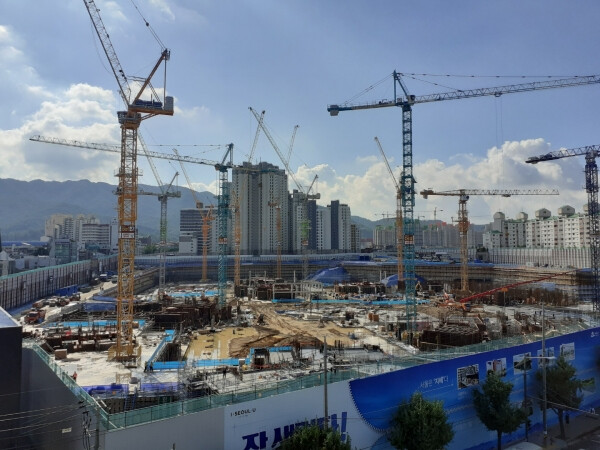
Seoul, South Korea – South Korea's ten largest construction companies are collectively grappling with a significant amount of uncollected payments, reaching a staggering 17 trillion won (approximately $14 billion) as of the third quarter. Despite the substantial figure, industry insiders maintain that a portion of these domestic receivables is expected to be collected over time and that such increases are often a natural consequence of heightened business activity for larger firms.
According to data released jointly by the Financial Supervisory Service and the Ministry of Land, Infrastructure and Transport, nine of the top ten construction companies reported a combined 17.637 trillion won in unpaid bills, including construction receivables, sales of real estate, and other outstanding claims. This represents a 4.2% increase compared to the end of the previous year.
Hyundai Engineering & Construction emerged as the company with the largest outstanding amount, reporting 4.9099 trillion won in construction receivables alone. This figure marks a substantial 47.7% increase from the end of 2023. When factoring in sales of real estate, Hyundai's total unpaid balance exceeded 5 trillion won.
Daewoo Engineering & Construction also experienced a significant increase in its receivables, which reached 2.5344 trillion won, up 36.6% year-on-year. Other major players like Hyundai Engineering, POSCO E&C, and Lotte Construction also reported notable growth in their outstanding payments.
However, not all companies experienced a rise in unpaid bills. SK ecoplant successfully reduced its construction receivables by 59.5%, leaving a balance of 4.013 billion won. Samsung C&T, GS Construction, and HDC Hyundai Development also managed to decrease their outstanding amounts compared to the previous year.
Industry experts attribute the increase in receivables to a combination of factors, including project delays, economic uncertainties, and payment disputes. Nevertheless, they assert that the situation is not alarming for most large-scale construction companies, as a portion of these funds are eventually expected to be recovered.
[Copyright (c) Global Economic Times. All Rights Reserved.]






























